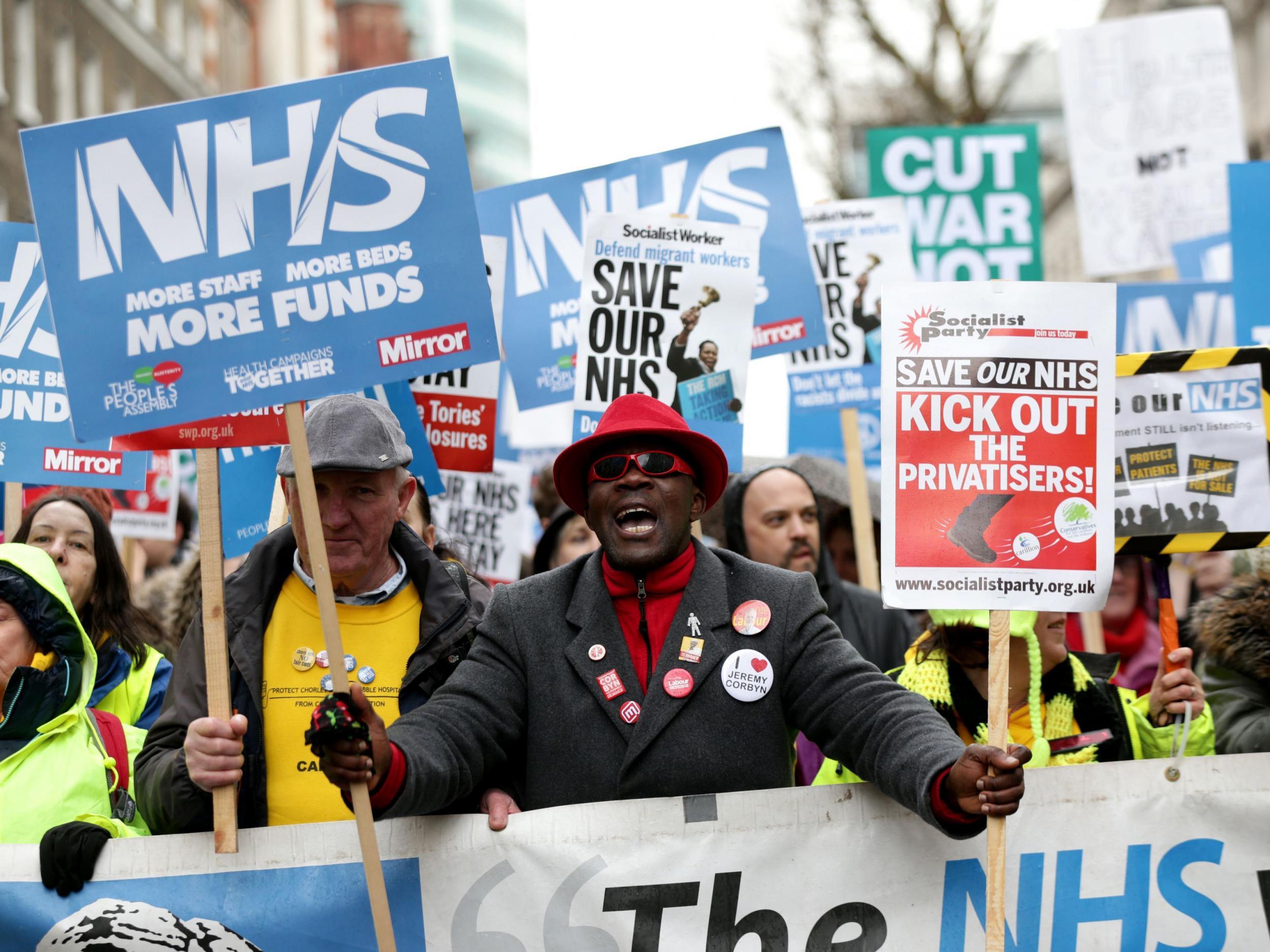Majority of UK voters would support tax rises to fund NHS, poll finds
Public prepared to pay more into health service amid growing concern over budget gap

Your support helps us to tell the story
From reproductive rights to climate change to Big Tech, The Independent is on the ground when the story is developing. Whether it's investigating the financials of Elon Musk's pro-Trump PAC or producing our latest documentary, 'The A Word', which shines a light on the American women fighting for reproductive rights, we know how important it is to parse out the facts from the messaging.
At such a critical moment in US history, we need reporters on the ground. Your donation allows us to keep sending journalists to speak to both sides of the story.
The Independent is trusted by Americans across the entire political spectrum. And unlike many other quality news outlets, we choose not to lock Americans out of our reporting and analysis with paywalls. We believe quality journalism should be available to everyone, paid for by those who can afford it.
Your support makes all the difference.More than six in 10 people would support tax increases to generate more funding for the NHS, according to new research.
The new poll also found that nearly 90 per cent of adults in England, Scotland and Wales believe the health service faces a major or severe financial crisis, a huge rise from 14 per cent in 2014.
Those willing to pay more into the NHS include 61 per cent of the highest earners, according to the highly respected and long-running British Social Attitudes (BSA) survey.
The findings were welcomed as a “watershed moment” by NHS chiefs, who said it demonstrated a growing consensus that the gap between the demands on the service and resources available was unsustainable.
Under the Conservatives the health budget has grown an average of just one per cent a year since 2010, compared to average annual increases of about four per cent since the NHS was established.
Theresa May promised to draw up a “long-term plan” for NHS funding ahead of the spring 2019 spending review.
Some 61 per cent of people who answered the BSA poll between July and October last year said they would support tax rises to bolster the health service. The figure is up from 49 per cent the previous year and 40 per cent in 2014.
Just over half of a third of respondents in the latest poll supported the creation of a new tax that channelled funding directly to the NHS, while a quarter said they would be happy to pay more through existing taxes.
“These findings confirm that we have reached a watershed moment for the NHS,” said Chris Hopson, chief executive of NHS Providers, which represents health trusts. “They reflect a growing consensus behind the arguments we have made, that the gap between what the NHS is being asked to deliver and the resources available is growing, and will not be bridged without a sustainable long-term funding plan for health and social care.”
He added: “The evidence for this is now overwhelming. The public support the NHS. They are rightly worried that standards are slipping. And increasingly – as this survey shows – they are prepared to pay more to fix it.”
The survey, carried out by the National Centre for Social Research and sponsored by the King’s Fund, uncovered growing unease among the public about the future of the NHS.
Some 86 per cent of people believed the NHS faced major or severe funding problems and 56 per cent expected standards of care to worsen in the next five years.
The proportion of people who think healthcare has worsened in the past half-decade has been growing steadily since 2010, reaching 45 per cent in the latest poll. Just 17 per cent said standards had improved, the lowest in two decades.
Notably, 56 per cent of Conservative supporters backed a tax rise to pay for the NHS, up from a third in 2014. Support among Labour supporters stands at 68 per cent.
A majority respondents across all age and income groups said they would be happy to pay more.
Niall Dickson, chief executive of the NHS Confederation, which represents organisations across the healthcare system, said: “It is up to government how it raises funds for public services, but these figures clearly show that more of the public across the UK support more resources for the NHS and that they are willing to pay more tax to bring that about.
“The case for more money for both health and social care has been made and it is overwhelming. Just about everyone is calling on the government to act. Without action, our health and care system will continue to deteriorate; millions will wait, more will suffer and some will die. It is now clear that the cries for more funding are unequivocal.”
Last year the government rejected NHS England chief executive Simon Stevens’ plea for an emergency £4bn injection of funding.
Chancellor Philip Hammond later pledged extra £2.8bn in one-off funding for the health service to cope with immediate pressures up to 2020, but NHS trusts are still estimated to be £900m in deficit.
Join our commenting forum
Join thought-provoking conversations, follow other Independent readers and see their replies
Comments